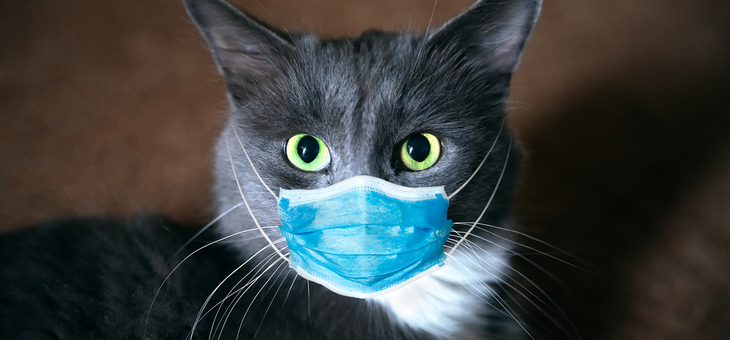It wasn’t so long ago that YourLifeChoices reported on the likelihood of around 410 species including domestic animals being COVID-19 carriers.
While further research proves that theory still holds water, it seems infected and re-exposed cats may hold the key to a virus vaccine.
According to a report published on PNAS, domestic dogs and cats did not develop recognisable clinical signs and symptoms after being infected with SARS-CoV-2.
While infected dogs did not shed virus, infected cats shed the virus orally and nasally for five days after infection.
However, cats re-exposed to the virus were not re-infected, meaning cats may be the key to developing a vaccine.
Much evidence points to animals as the virus’ original source.
As a result, there are concerns about possible transference of the disease from pets to owners.
This concern has led to testing domestic cats and dogs for infection potential.
It seems that cats are highly susceptible to infection and, although unlikely to show obvious signs of infection, could infect other cats.
While there is no evidence yet that cats or dogs could infect humans, it may be possible for infected owners to pass on the virus to their domestic pets.
The studies show that cats developed an effective immune response and robust neutralising antibody response that prevented reinfection following a second viral challenge.
Scientists hope this resistance to reinfection may help them develop a vaccine strategy to protect cats and, hopefully, humans.
And this is not the only way cats may help with a virus vaccine.
Researchers at the University of Alberta looking for a feline coronavirus drug found one that could potentially be an effective treatment against SARS-CoV-2 in humans.
The study, published in the journal Nature Communications, may lead to human clinical trials, which could begin soon, said senior author Professor Joanne Lemieux.
“This drug is very likely to work in humans, so we’re encouraged that it will be an effective treatment for COVID-19 patients,” said Prof. Lemieux.
The drug worked in cats by preventing the virus’ ability to replicate, thus ending an infection.
Clinical trials will need to run their course before the drug is declared safe and effective for human testing.
However, Prof. Lemieux believes it could be fast-tracked into human trials, given its impressive track record in veterinary medicine.
“Because this drug has already been used to treat cats with coronavirus, and it’s effective with little to no toxicity, it’s already passed [preclinical] stages, and this allows us to move forward,” she said.
Do you own a cat? Would you ever have imagined that it might be integral to finding a virus vaccine?
If you enjoy our content, don’t keep it to yourself. Share our free eNews with your friends and encourage them to sign up.
Related articles:
https://www.yourlifechoices.com.au/health/covid19/do-viruses-mutate-and-jump-species
https://www.yourlifechoices.com.au/health/covid19/covid19-are-bats-to-blame
https://www.yourlifechoices.com.au/health/covid19/chilling-covid-transmission-claims

